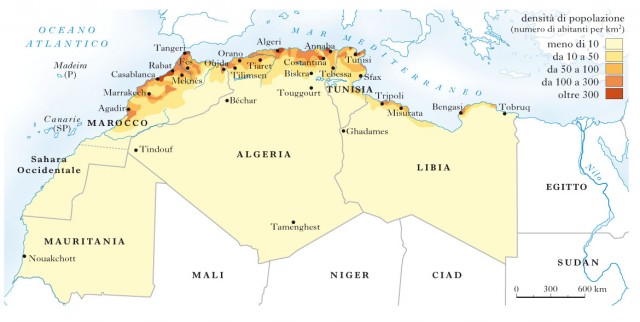Maghreb
Maghreb, or Maghrib, is an Arabic word meaning “west” or “place of sunset.” It refers to the area of North Africa west of EGYPT. Known in ancient times as Africa Minor, the Maghreb refers to MOROCCO, ALGERIA, TUNISIA, and sometimes LIBYA. The interior desert regions of these countries are not always considered part of the Maghreb.
The Maghreb contains fertile coastal plains, mountains, and scrubland in the south that merges into the SAHARA DESERT. The area north of the mountains generally receives enough rainfall to support intensive agriculture on the coastal plains, where most of the population lives. The ancestors of the BERBERS are the original inhabitants of the region. The Arabs conquered the Maghreb between A.D. 643 and 711 and ruled it through semi-independent kingdoms and chiefdoms. From the 800s to the 1300s, the region was the center of an active trading economy linked by caravan routes across the desert to sub-Saharan Africa.
Although colonized by European powers in the 1800s and 1900s, the Maghreb has retained much of its Arab heritage, including the Arabic language and Islamic religion. (See also Arabs in Africa, Islam in Africa, North Africa: Geography and Population, North Africa: History and Cultures.)
